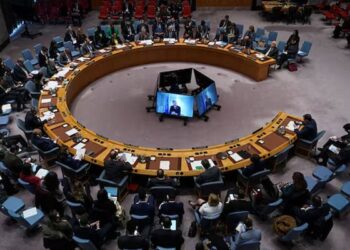Select Language:
Understanding Global Physical Safety: An Insight into Freedom House’s Report
The latest report from the watchdog organization Freedom House has brought to light critical findings concerning the physical safety of individuals across various countries and territories. The report, which assigns alarming scores to nations based on their ability to provide safety to their residents, reveals a troubling trend regarding human rights and freedoms worldwide.
The Zero Score: A Definition
Freedom House’s scoring system is pivotal in assessing the extent of physical safety residents experience within a country. A score of zero indicates a severe lack of basic protections against various forms of violence, including:
- War and Insurgency: Nations embroiled in conflict often suffer from extreme insecurity, making daily life perilous for the inhabitants.
- Crime: High levels of crime, particularly violent crime, contribute significantly to residents’ fears for their safety.
- Police Brutality: Governments that allow or encourage state-sanctioned violence exacerbate the risks faced by ordinary citizens.
The organization defines a zero score as meaning that residents "lack even minimal protections" against such threats, emphasizing the dire conditions faced by people in these nations.
A Historical Perspective on Safety Scores
In 2005, Freedom House reported 25 countries and territories that received a zero for physical safety. Fast forward to the present day, and that number has shockingly risen to 41. This increase underscores a worrying trajectory where the basic rights and protection of individuals are increasingly at risk, especially in authoritarian regimes.
Countries Highlighted in the Report
The report identifies several noteworthy countries that have received a zero score, illustrating the global scope of this issue:
- Russia: The ongoing conflict with Ukraine and internal repression of dissent makes physical safety virtually non-existent for many citizens.
- China: Notable for its stringent control over civil liberties and widespread human rights abuses, resulting in a threatening environment for those who oppose the state.
- Saudi Arabia: Despite its economic advancements, political repression gives rise to severe limitations on personal safety and freedom.
- Egypt and Bahrain: Both countries illustrate the chilling effect of authoritarian governance on their populations’ rights and security.
Interestingly, while many nations in conflict or those considered failed states are included in this alarming list, the presence of countries with robust economies raises questions about the relationship between governance and safety.
Regional Comparisons: A Closer Look
Europe and Eurasia
In the regions of Europe and Eurasia, several countries received zero scores:
- Ukraine: Under ongoing invasion, parts of Ukraine (specifically, territories occupied by Russia) illustrate a complex interplay of conflict and governance.
- Belarus: A repressive regime maintains its stranglehold on dissent, creating a hostile environment for its citizens.
- Azerbaijan: Concerns over ethnic minorities and dissent suppression place Azerbaijan on this worrying list.
The Americas
The Americas fare somewhat better in terms of physical safety ratings:
- Cuba, Venezuela, and Haiti: These countries registered zero scores, highlighting significant governance challenges and civil unrest.
- Compared to other continents, the Americas generally exhibit a more favorable safety environment for residents, although significant issues remain.
Asia and Africa
In Asia and Africa, the report paints a stark picture:
- Many countries across these continents received zero scores, suggesting that violence, crime, and oppressive regimes are prevalent.
- The lack of a comprehensive safety framework in these regions exacerbates the struggles faced by ordinary citizens, who often live in constant fear of violence or governmental retribution.
The Impact of Authoritarianism on Safety Ratings
The data presented in Freedom House’s report clearly illustrate that unchecked power in authoritarian regimes leads to a rapid decline in rights and freedoms. The consistent overlap between countries with zero safety scores and those classified as "not free" highlights the pressing need for awareness and intervention to safeguard human rights globally.
This report not only emphasizes the dire situation regarding personal safety in various countries but also serves as a call to action for global policymakers, organizations, and citizens to advocate for widespread systemic reforms that uphold the dignity and safety of all individuals.







